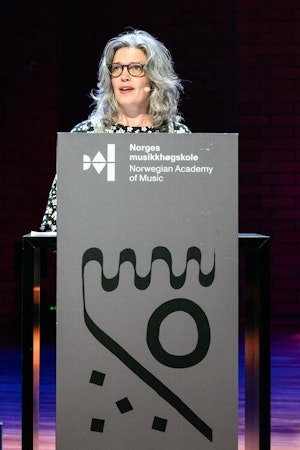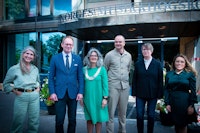Welcome to the formal conclusion of the 2024–2025 academic year at the Norwegian Academy of Music.
And a big thank you to Lukas, Sandra, Astrid, Amund, and Johanne for opening the programme with a fanfare on the lur. The piece is titled PRELURIUM, composed by Wolfgang Plagge and originally written for the "Sound of the Academy" festival in 2020.
Many of us remember that festival – which was cancelled due to the COVID pandemic. During the same period, events like this one were also not held.
When we resumed after the pandemic—and I was new as principal—we initially questioned how important a ceremony like this was for the students. Many finish their exams long before June 20th and leave the city, so not everyone can be present.
A Ritual of Transition
But we quickly realised that rituals like this are important to many – graduating students with their families, other students, and the Academy's staff. Coming together to celebrate some of what we have achieved, both individually and collectively, over the past year, has value. It is appreciated, and those of us here represent many more.





